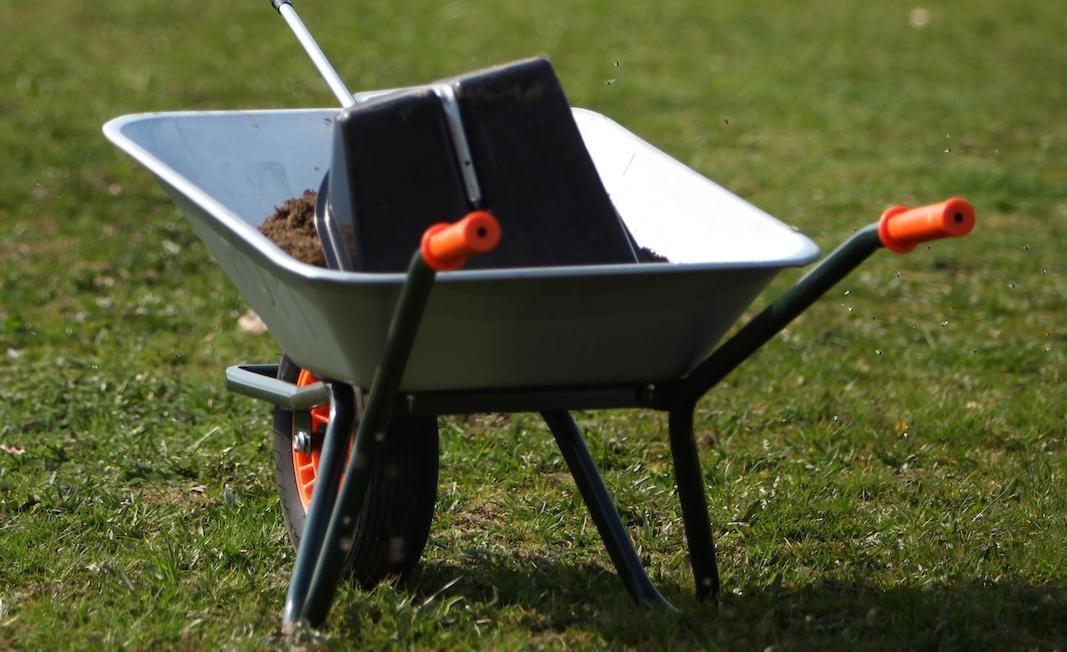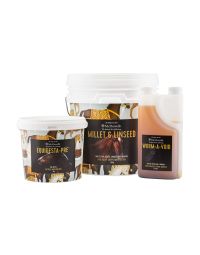In recent years, more horse owners and equine professionals have become aware of a growing issue: chemical worm resistance. Worms, like all living organisms, adapt to their environment - and decades of routine chemical worming have accelerated their ability to withstand even the most widely used drugs.
This not only impacts the effectiveness of treatment, but it also poses deeper questions about the long-term health of our horses...
At the 30th National Equine Forum, equine experts discussed the importance of moving away from “just-in-case” worming. Despite growing awareness, many horses are still being drenched routinely - often without a faecal egg count (FEC) or any assessment of actual need. This overuse contributes to resistance, but also places a burden on the horse’s gut, liver, and immune system.
A historical perspective
For generations, horses lived in close harmony with the land and were managed according to observation, season, and need. In fact, our ancestors rarely wormed horses as frequently as modern recommendations suggest - yet they maintained healthy, productive animals.
Today, animal health is deeply entwined with chemical agriculture, and routine chemical wormers are often administered regardless of lifestyle, paddock hygiene, or gut health. But at McDowells, we take a different view.
Rather than aiming to eliminate every single parasite, we focus on supporting the horse’s natural digestive function and resilience—creating an internal environment that is inhospitable to parasites, while preserving the integrity of the gut wall, immune function, and microbiome.
The impact of chemical overuse
While chemical drenches are sometimes necessary, overuse comes with risks:
- Drench resistance, where parasites no longer respond to treatment
- Gut lining damage, weakening digestion and nutrient absorption
- Stress to the liver and kidneys, as these organs must filter chemical residues
- Disrupted microbiota, which can weaken the horse’s immunity and resilience
Over time, these effects may manifest as recurrent illness, poor coat quality, reduced performance, or metabolic issues—even if the parasite load is “under control.”
A holistics strategy for parasite management
A small worm burden is natural. In a well-supported horse, the immune system and healthy gut flora can manage low-level parasitism without harm. Our goal is to work with the body, not against it - supporting the gut’s own ability to stay balanced and resilient.
Here's what we recommend:
McDowells Herbal Worming Program
Our three-part herbal protocol focuses on cleansing, nourishing, and restoring - without disrupting the delicate balance of the digestive system.
Worm-A-Void
A blend of traditional bitter and astringent herbs designed to tone the gut wall, support healthy digestive function, and create an environment that discourages parasite habitation. Rather than simply “killing worms,” this tonic may help the body expel parasites naturally and improve the gut’s ability to manage its own parasite load over time.
Equigesta-Pre
This daily prebiotic contains a combination of herbal powders, brewer’s yeast, and bentonite clay. It helps promote beneficial gut bacteria, supports the microbiome, and assists in calming the gut lining - particularly useful after chemical worming or during times of stress.
Ground Millet and Linseed
These whole-food supplements are rich in organic silica, healthy fats, and trace minerals. Together, they nourish the gut lining, support coat and skin health, and provide essential building blocks for a resilient digestive tract.
Managing the Environment
A natural worming program works best when combined with thoughtful pasture management:
- Pick up manure regularly, especially on smaller acreages
- Use rotational grazing, and where possible, graze alternate species like sheep or cattle
- Rest pastures seasonally, particularly during high-risk times like spring and autumn
- Consider soil health: adding biodynamic soil sprays, basalt, or dolomite can improve the land’s resilience and help interrupt parasite life cycles naturally
In areas with seasonal extremes - such as Australia’s frosty winters and dry summers - nature can be your ally. Dry periods and frost interrupt the worm lifecycle and reduce environmental parasite loads.
Worm management doesn’t have to be a constant chemical battle. When we work with the body, building up rather than breaking down, we see horses that are healthier, more resilient, and better equipped to thrive in their environment.
If you're unsure where to begin, we're here to help. Our team offers free consultations to support you in tailoring a worming program that aligns with your horse’s needs, your management style, and your goals.

